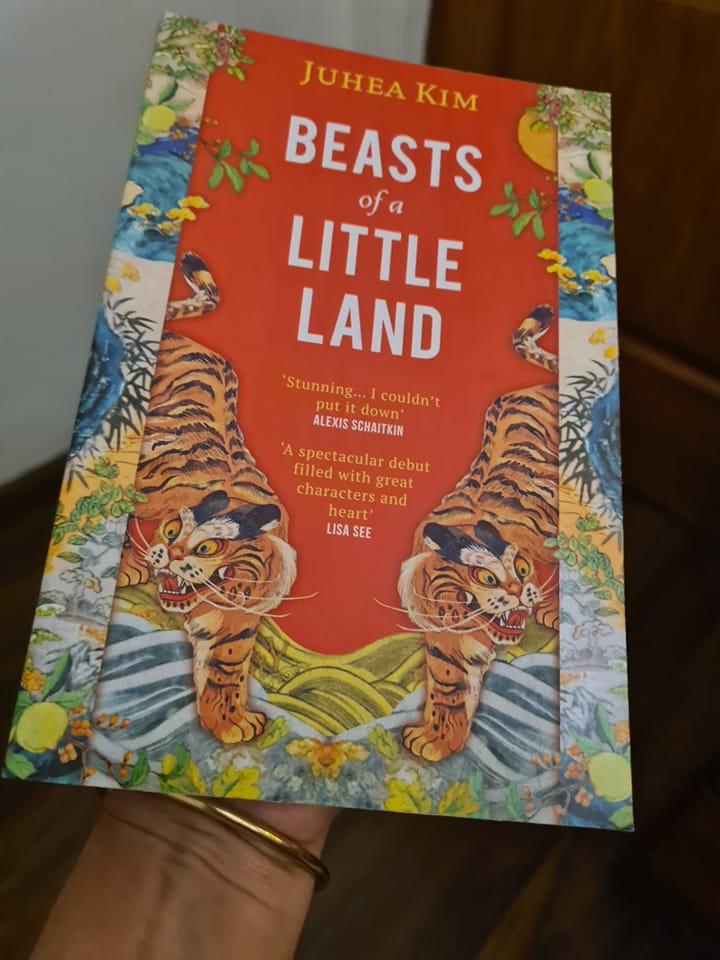 It was late in 2016 that the cyber-whispers about a magnificent new novel in translation began. Then in January 2017 The New Yorker published a review-article about Argentinian Samantha Schweblin’s debut novel Fever Dream. Shortly thereafter this slim novel was longlisted ( later to be shortlisted too) for the Man Booker International Prize 2017. Fever Dream is about Amanda who is blind and dying. She is conversing with a young boy David. Amanda and David’s mother, Carla, became friends when Amanda moved into the neighbourhood. It was a peculiar relationship which had an unnatural intensity to it evident in the heart-to-heart talks the women had. At times it almost seems as if Carla has taken on the mother’s role to Amanda and yet there are flashes when it seems as if Carla is speaking to Amanda in a confessional mode. Most of the conversations revolved around Carla’s bewilderment about David’s transformation, almost as if he was a changeling.
It was late in 2016 that the cyber-whispers about a magnificent new novel in translation began. Then in January 2017 The New Yorker published a review-article about Argentinian Samantha Schweblin’s debut novel Fever Dream. Shortly thereafter this slim novel was longlisted ( later to be shortlisted too) for the Man Booker International Prize 2017. Fever Dream is about Amanda who is blind and dying. She is conversing with a young boy David. Amanda and David’s mother, Carla, became friends when Amanda moved into the neighbourhood. It was a peculiar relationship which had an unnatural intensity to it evident in the heart-to-heart talks the women had. At times it almost seems as if Carla has taken on the mother’s role to Amanda and yet there are flashes when it seems as if Carla is speaking to Amanda in a confessional mode. Most of the conversations revolved around Carla’s bewilderment about David’s transformation, almost as if he was a changeling.
“Amanda, when I find my real David,” your mother says, “I won’t have any doubts it’s him.”
Surprisingly the conversations between David and Amanda are of the same tenor as that of Carla and Amanda though eerily David sounds the most mature “adult” of the three. He is constantly interrupting Amanda saying “You’re wasting time“,
“We need to go faster“,
” I’ll tell you when its important to know the details“,
“But you always miss the important thing“,
“I’m not interested in this anymore” and
“Amanda, I need you to concentrate“.
Its as if the little boy is editing and slowly controlling Amanda’s narrative as if he is privy to more information than she is. There is a sense of urgency to the conversations probably because Amanda is burning with a fever on her death bed.
Amanda has a daughter called Nina. Under Amanda’s watchful eye Nina is never allowed to wander far. The safe distance is measured by what Amanda refers to “rescue distance”. Crossing the imaginary line of this perceived safe distance can catapult Nina into danger given that her mother will not be able to reach in time to rescue her. According to the Guardian, “the phrase is the original, and better, title of the book in Spanish”. And this is the distance that is played upon constantly to fathom what exactly transpired to cause Amanda’s trauma.
“When does it start to go bad, exactly?“,
“We’re almost there“,
“This is the most important thing. This is everything we need to know.” ,
“It is important, but it’s not what we need to understand. Amanda, this is the moment, don’t get distracted. We’re looking for the exact moment because we want to know how it starts.”,
“It’s very gradual.” and “No, no. It’s not about worms. It feels like worms, at first, in your body. But Amanda, we’ve been through all this, too. We’ve already talked about the poison, the contamination. You’ve already told me four times how you got here.”
Fever Dream may be about mothering and the anxieties that are the defining undercurrents of motherhood. It also explores that grey area when an adult behaves child-like and vice versa. It happens. It comes through in the conversations. It is further accentuated by the structure of the novel which opens with Amanda and David conversing briefly — this becomes like the framing text. Then there are long passages of Amanda recalling her time with Carla and sequence of events which resulted in her hospitalisation but as the novel progresses these are steadily punctuated by David’s remarks. So what begins like a conversation seemingly between two adults one realises a little later is between a child and an adult but framing the text in this manner juxtapositioning conversations blurs the lines too.
There are always those flashes of adult behaviour apparent in a child which is understandable as they are evolving, also basing their actions on the role models around them. Curiously enough this very fact for which there is a logical explanation can also be disconcerting and challenging for the reader. The powerfully mesmerising writing style which gets carried over in translation as well is commendable but also has echoes of the legendary Brazilian writer Raduan Nassar. He has been hugely influential on contemporary Latin American literature with his two books — A Cup of Rage and Ancient Tillage ( translated by Stefan Tobler). Fever Dreams is the closest to A Cup of Rage in its feverish pace of writing, explosive action and bewildering consequences. Also these two stories create a strong urge to read them from the start upon finishing the last page — as if in a cyclical manner.
Reading Fever Dreams is an exciting exercise by itself but then I came across Valerie Miles recommendation for Samanta Schweblin’s story, “My Parents, My Children” ( translated by Kit Maude) at The Short Story Project . She says : “Let’s face it, the matter of our every day lives is of strange stuff made. When viewed apprehensively, when the strings of family are stretched taut over the Nabokovian abyss to nestle a rocking cradle, or coddle an aging parent whose mind is failing, what’s normal can quickly turn downright bizarre.” It may be too early to say but this exploration of how the young and old seem to behave inexplicably like each other at different stages of life may become a characteristic trait of Samanta Schweblin’s magnificently disturbing but beautifully crafted writing. It is a wonderful compliment to the translation skills of Megan McDowell for having retained the force of the original text and transmitted it equally forcefully in the destination language.
As with Man Booker International Prize 2016 winner The Vegetarian ( translated by Deborah Smith), Fever Dream too raises the bar for literary fiction. Both these novels are extraordinary examples of confident writing whereby the novelists challenge the “traditional” styles of plot, dialogue, structure of text all the while capturing the reader’s imagination. A year on The Vegetarian continues to sell. Fever Dream, whether it wins the prize or not, will also be a steady seller in years to come.
Samanta Schweblin Fever Dream ( Translated by Megan McDowell) Oneworld, London, 2017. Pb. pp. 150 Rs 399 ( Distributed by PanMacmillan India)
12 May 2017



